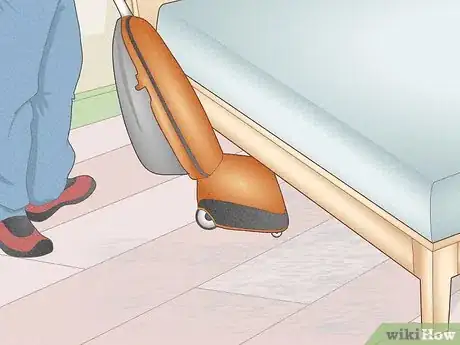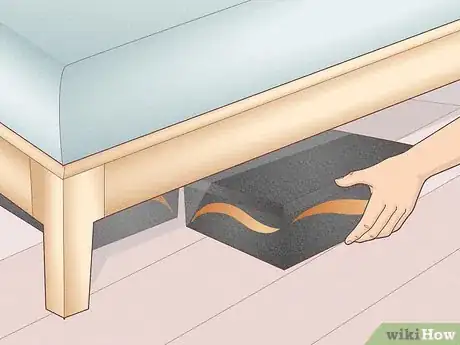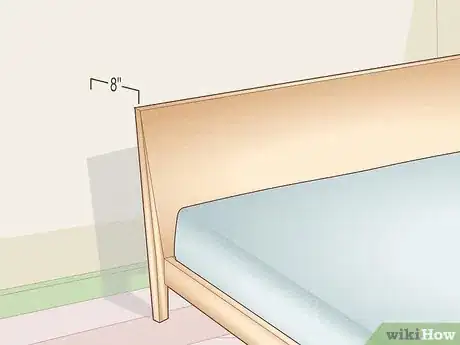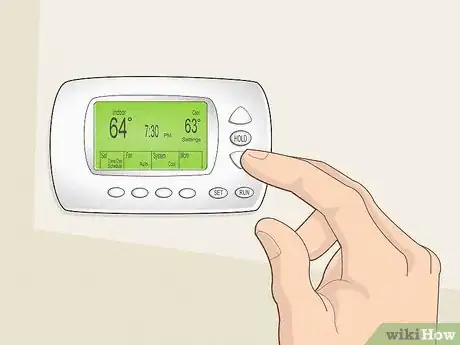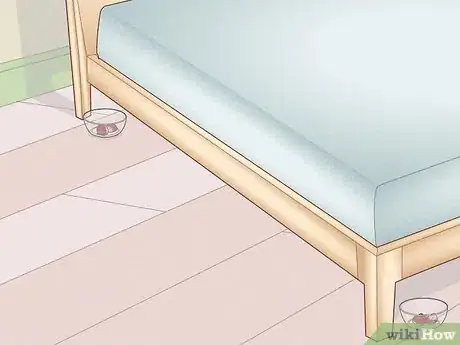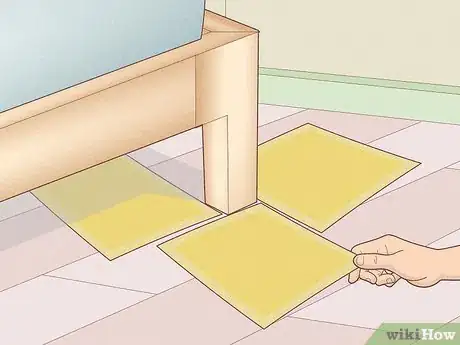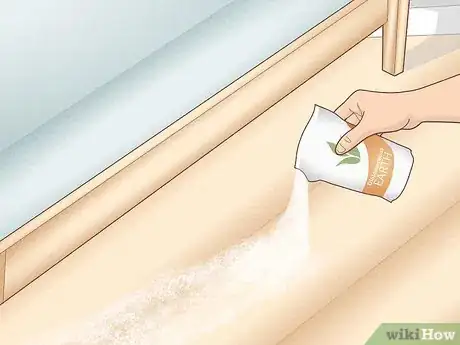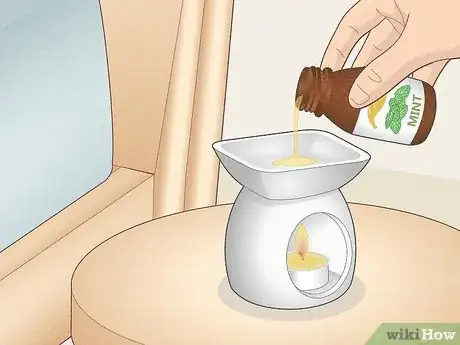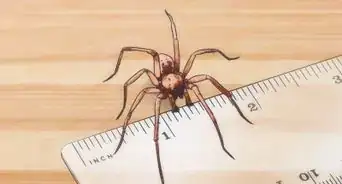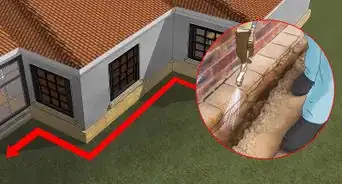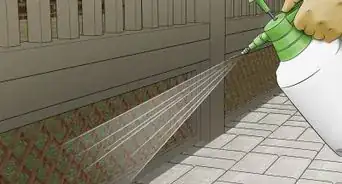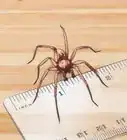This article was co-authored by Chris Parker and by wikiHow staff writer, Eric McClure. Chris Parker is the Founder of Parker Eco Pest Control, a sustainable pest control service in Seattle, Washington. With over seven years of experience, Chris specializes in Integrated Pest Management and doesn’t use any chemicals for pest removal. He offers removal services for ants, rodents, fleas, spiders, wasps, and more. Chris is a certified Commercial Pesticide Applicator in Washington State and received his bachelor’s from the University of Washington.
There are 11 references cited in this article, which can be found at the bottom of the page.
This article has been viewed 62,809 times.
If you’re trying to keep creepy crawlies out of your bed at night, we’ve got good news for you—spiders want nothing to do with you at night either! People move around while they sleep, and even the movement of your chest as you breathe can scare a spider on its way. However, if you’re trying to maximize the odds that spiders leave you alone while you get your beauty sleep, we’ve got a bunch of scientifically proven tips and tricks. Just FYI, while spiders are scary looking and a bit creepy, it’s actually good to have them hanging around while you sleep, since they’ll eat all of the nasty bugs that will bother you while you snooze.
Steps
Expert Q&A
-
QuestionHow can I prevent spiders from entering my house?
 Chris ParkerChris Parker is the Founder of Parker Eco Pest Control, a sustainable pest control service in Seattle, Washington. With over seven years of experience, Chris specializes in Integrated Pest Management and doesn’t use any chemicals for pest removal. He offers removal services for ants, rodents, fleas, spiders, wasps, and more. Chris is a certified Commercial Pesticide Applicator in Washington State and received his bachelor’s from the University of Washington.
Chris ParkerChris Parker is the Founder of Parker Eco Pest Control, a sustainable pest control service in Seattle, Washington. With over seven years of experience, Chris specializes in Integrated Pest Management and doesn’t use any chemicals for pest removal. He offers removal services for ants, rodents, fleas, spiders, wasps, and more. Chris is a certified Commercial Pesticide Applicator in Washington State and received his bachelor’s from the University of Washington.
Founder, Parker Eco Pest Control Have all plants one foot away from the house. Put curtains on the windows so that insects are not attracted to the light. Seal all the crawl spaces and entry points from where the spiders can enter the house.
Have all plants one foot away from the house. Put curtains on the windows so that insects are not attracted to the light. Seal all the crawl spaces and entry points from where the spiders can enter the house. -
QuestionWhat can I do to keep spiders away from outdoor areas?
 Chris ParkerChris Parker is the Founder of Parker Eco Pest Control, a sustainable pest control service in Seattle, Washington. With over seven years of experience, Chris specializes in Integrated Pest Management and doesn’t use any chemicals for pest removal. He offers removal services for ants, rodents, fleas, spiders, wasps, and more. Chris is a certified Commercial Pesticide Applicator in Washington State and received his bachelor’s from the University of Washington.
Chris ParkerChris Parker is the Founder of Parker Eco Pest Control, a sustainable pest control service in Seattle, Washington. With over seven years of experience, Chris specializes in Integrated Pest Management and doesn’t use any chemicals for pest removal. He offers removal services for ants, rodents, fleas, spiders, wasps, and more. Chris is a certified Commercial Pesticide Applicator in Washington State and received his bachelor’s from the University of Washington.
Founder, Parker Eco Pest Control Try switching to low-frequency light bulbs. Use bags of cedar chips, as they are a kind of natural repellent. You can use insecticides that make the surface infeasible for attaching spider webs.
Try switching to low-frequency light bulbs. Use bags of cedar chips, as they are a kind of natural repellent. You can use insecticides that make the surface infeasible for attaching spider webs. -
QuestionIf I have holes in my drywall. Is that gonna be a problem, like right above my head when I'm sleeping and various other places in my room?
 Naava Brown-PopeCommunity AnswerI used to have a few, but it depends on how much light there is in your room. I would recommend patching the holes, because while most spiders don't like a lot of light, this will attract other insects, and some spiders will come in, light or not.
Naava Brown-PopeCommunity AnswerI used to have a few, but it depends on how much light there is in your room. I would recommend patching the holes, because while most spiders don't like a lot of light, this will attract other insects, and some spiders will come in, light or not.
Warnings
- Lemon/citrus oils are one of the most commonly-recommended natural spider repellants. Unfortunately, citrus and lemon oils don’t appear to do anything when it comes to keeping spiders at bay.[17]⧼thumbs_response⧽
References
- ↑ https://spiders.ucr.edu/how-avoid-bites
- ↑ https://entomology.ca.uky.edu/ef623
- ↑ https://extension.usu.edu/pests/uppdl/hobo-spiders
- ↑ Chris Parker. Founder, Parker Eco Pest Control. Expert Interview. 15 January 2021.
- ↑ http://web.pdx.edu/~smasta/MastaSpidersYard.html
- ↑ https://pubmed.ncbi.nlm.nih.gov/29309619/
- ↑ https://www.cnn.com/2012/08/08/health/heat-spiders/index.html
- ↑ https://pubmed.ncbi.nlm.nih.gov/29309619/
- ↑ https://extension.usu.edu/pests/uppdl/hobo-spiders
- ↑ http://npic.orst.edu/factsheets/degen.html
- ↑ https://entomology.ca.uky.edu/ef641
- ↑ Chris Parker. Founder, Parker Eco Pest Control. Expert Interview. 15 January 2021.
- ↑ Chris Parker. Founder, Parker Eco Pest Control. Expert Interview. 15 January 2021.
- ↑ https://pubmed.ncbi.nlm.nih.gov/29309619/
- ↑ https://theconversation.com/should-i-kill-spiders-in-my-home-an-entomologist-explains-why-not-to-95912
- ↑ https://www.reconnectwithnature.org/News-Events/The-Buzz/Myth-Buster-We-Don-t-Really-Swallow-Eight-Spiders
- ↑ https://pubmed.ncbi.nlm.nih.gov/29309619/
